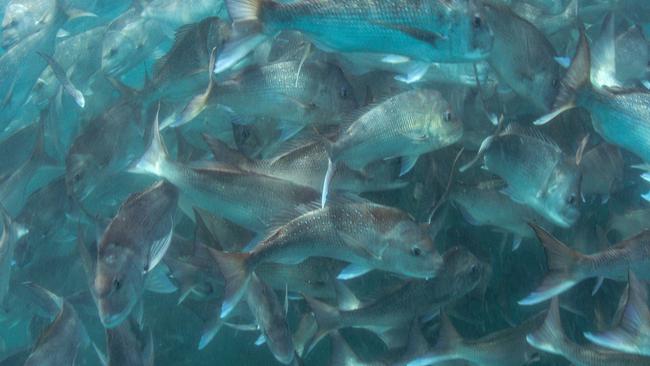New trial for fisher accused of plundering marine park snapper
The first fisherman convicted of illegally fishing for snapper in a marine park has won a new trial following a successful Supreme Court appeal.

Police & Courts
Don't miss out on the headlines from Police & Courts. Followed categories will be added to My News.
- Fisherman Jakyb Trent Sharman found guilty of catching 1.8 tonnes of snapper
- Get the most out of your Advertiser subscription
The first professional fisherman convicted of illegally fishing in one of South Australia’s marine parks has won a retrial.
The Full Court of the Supreme Court has unanimously quashed Port Wakefield fisherman Jakyb Trent Sharman’s conviction and ordered that he be retried on all charges before a different judge.
In its judgment Justice Tim Stanley found that despite an error of factual finding by the trial judge, it had not been established the charges “have been so clearly proved as such that this court can be satisfied that the verdicts of guilty were inevitable.’’
Sharman, 26, was convicted in the Environment, Resources and Development Court in February of eight counts of illegally fishing in a sanctuary zone that covers the upper reaches of Gulf St Vincent.
It was alleged he caught 1.8 tonnes of snapper in the sanctuary zone that he sold for $23,206 after setting his longlines on eight separate trips into the sanctuary zone in September and October in 2017.
While he was caught in the sanctuary zone at night in possession of 153kg of snapper on one occasion, the remaining counts relied on the use of GPS data that revealed his boat had travelled into the sanctuary zone at night over the previous fortnight and he had sold snapper following those successive trips.
In convicting Sharman ERD Court Judge Michael Durrant described his conduct as “serious, repetitive and deliberate’’ and his actions undermined the Marine Parks Act.
Judge Durrant sentenced Sharman to five months jail for the eight offences, but suspended it in favour of a 12-month, $500 good behaviour bond. He was also ordered to pay $10,000 compensation and costs towards the Fisheries department investigation.

In Sharman’s appeal against his conviction he listed 10 grounds including factual errors by the trial judge, including whether he “erred in failing to grant an application for a mistrial after he allowed the respondent to discredit its own witness … during the defence case, having relied upon his evidence as part of the prosecution case.’’
He also contended the trial judge made an error of fact in allowing the use of GPS data from Sharman’s boat as evidence of fishing in the sanctuary zone.
In the Full Court judgment Justice Stanley states the respondent’s case at trial was that GPS data showed Sharman was fishing within the sanctuary zone, setting his lines in a zigzag pattern, While Sharman admitted fishing at those times, he denied doing so within the sanctuary zone and that he only ever set his longline in straight line.
“The appellant’s case at trial and on appeal was that the GPS evidence was equally consistent with two competing hypotheses,’’ Justice Stanley states.
“At trial the appellant gave evidence that his practice was to reconnoitre for fish within the sanctuary zone at particular waypoints he had already entered into his GPS. If he found fish he would then travel south to a point just outside the sanctuary zone where he would wait for the fish to come on the tide and catch them.’’
Justice Stanley said at trial Sharman contended that Fisheries officers had failed to exclude this as a reasonable hypothese consistent with innocence. Judge Durrant also rejected that contention.
The Port Clinton Wetlands sanctuary zone that Sharman was illegally fishing in is a recognised aggregation site for large schools of snapper that spawn in the shallow waters.
The State Government introduced 19 marine parks in 2014. Each of the parks contains several zones, including sanctuary zones in which both recreational and commercial fishing is banned.
